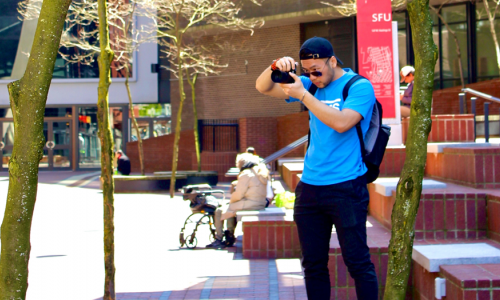
You know the feeling of being stuck. Whether in your personal, interpersonal, professional, or any other life, the sense of having fallen out of the groove is always similarly and markedly unpleasant. You're out of your element. You're spinning your tires, expending lots of effort with seemingly no forward motion to thank for it.
While "stuckness" is not defined by any one symptom (nor is it defined at all), you might be stuck if you're experiencing one or more of the following:
-
Lack of motivation
-
General sense of malaise
-
Feeling cranky, irritable, moody
-
Lack of confidence
-
Increased fatalism and hopelessness
-
Loss of energy
-
Extreme procrastination
-
Rigid thinking
-
Physical inability to move (sorry, couldn't help myself)
This might be a momentary state of mind, or it could be a more general sense of stuckness persisting over weeks. I know I've experienced all kinds of being stuck, but most often it's a pretty short-term phenomenon. That is to say, the feeling lasts for a while, maybe a few hours, then eventually dissipates. Of course, that's a few hours in which I didn't get anything constructive done, did a mediocre at best job at whatever I was doing, and felt like total garbage.
Needless to say, we'd all prefer to minimize the amount of time spent like that.
So how do we do it? Is there a secret? Some fancy psychological trick that will totally change the way we think or behave?
The short answer: no. I don't know what's going on in your life, and short of a few therapy sessions, I won't be able to find that out. I don't know why you're feeling stuck, but I can tell you this: often times, the simplest answer is the best one. With experiences like being stuck, our natural tendency is to look for complex solutions - the mind, after all, is a complicated thing. But what if you're overlooking something so basic, so fundamental, that no matter how much reflective journaling, meditation, spiritual enlightenment, etc. you do, you won't feel better?
Let's keep it simple. And for that, there's an acronym: HALT.
So, next time you're feeling stuck, ask yourself: Am I hungry? Am I angry? Am I lonely? Am I tired?
These are all problems with clear and relatively simply applied solutions. Hungry? Have a snack! Angry? Go for a walk to cool off. Lonely? Call a friend/family member/your cat to arrange for some company. At work? See if a coworker will go for a short walk with you. Tired? Have a nap, grab a coffee, or (my favourite) both!
All it takes is to stop for a moment and listen to some very basic signs from your body. It's telling you things like this all the time, and it's in everyone's best interest if you listen.
Beyond the Blog
- Visit the Career Services website to view job postings, book a career advising appointment, register for workshops and more
















